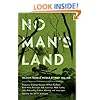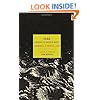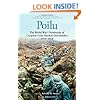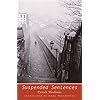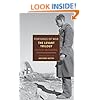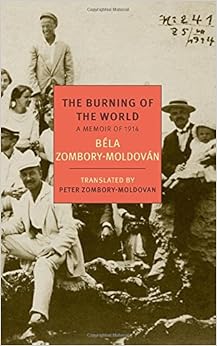
The Burning of the World: A Memoir of 1914
and over one million other books are available for Amazon Kindle. Learn more


Flip to back
Flip to front

The Burning of the World: A Memoir of 1914 (New York Review Books Classics) Paperback – August 5, 2014

$10.88
FREE Shipping on orders over $35.
In Stock.
Ships from and sold by Amazon.com.
Gift-wrap available.
NO_CONTENT_IN_FEATURE
Start reading The Burning of the World on your Kindle in under a minute.
Don't have a Kindle? Get your Kindle here, or download a FREE Kindle Reading App.
Don't have a Kindle? Get your Kindle here, or download a FREE Kindle Reading App.
Browse in Books with Buzz and explore more details on selected titles, including the current pick, "Neil Patrick Harris: Choose Your Own Adventure," an engaging, interactive dive into the versatile actor's life (available in hardcover and Kindle book).
Product Details
Would you like to update product info or give feedback on images?.
|
Editorial Reviews
Review
“A remarkable narrative, a real treasure, a book everyone should read. The Burning of the World is a work of superb reportage as well as being a non-fiction companion volume to Joseph Roth’s classic The Radetzky March … The Burning of the World is a marvellous discovery with a humility and sense of wonder that places it more than the equal of even Robert Graves’s Good-Bye to All That.” —The Irish Times
“[W]ritten with a painter’s eye for colour … [it] matters not only for its literary qualities but also as an evocation of the Austro-Russian theatre (for which we have very few accounts) during the more mobile opening phase of campaigning, when casualty rates were among the highest of the war. … [a] story not only of madness and massacre but also of regeneration.” —David Stevenson, The Financial Times
“To a certain extent, World War I memoirs written from the ant’s perspective resemble one another, all mud and horror. What makes this one stand out is the author’s painterly eye for detail, his ability to evoke a vanished way of life, and his tone of voice—gentle and civilized but perfectly capable of the occasional sardonic flash.” —Henrik Bering, The Wall Street Journal
“The pages devoted to the subject [of combat] are brilliant…The strength of this book is as an account [of] the effect of war on one sensitive young man and on everything and everybody.” —Charles Moore, The Daily Telegraph
“To be in a war, within it, to know what that means, to understand the appalling and dreadful significance of all that is appalling and dreadful—such was the fate of this gentle Hungarian painter. This book is perilous reading: the reader is invited, along with the writer, the one who remembers, to take part in what happened. But this is what we must do: from sympathy, from compassion, so that the one who truly lived through all of this will not be so utterly, unbearably alone.” —László Krasznahorkai
“One reads with never-ending curiosity and ever deeper emotion these recollections of the first year of World War I on the nearly forgotten eastern front. Here, instead of trenches, there was constant movement. Vast ill-equipped and ill-trained armies composed of multiple nationalities—among them Russians, Cossacks, Caucasians, Asians, Austro-Germans and Reich Germans, Hungarians, Romanians, Poles, Czechs, Slovaks, Croats, Serbs, and Slovenes—massacred each other for causes that few involved could understand.” —István Deák, Columbia University
"The writing detailing the author's experiences in battle has an energy and sense of urgency, and the whole book is filled with the understanding that life would never be the same again...recommended for anyone interested in World War I, war memoirs, and the history of eastern Europe." —Library Journal
"...haunting, heartbreaking, and beautifully written...[Zombory-Moldovan's] relatively short exposure to combat is conveyed with an unforgettable intensity. But this is not another chronicle of trench warfare....This is a deeply moving account of a young man's short but terrible plunge into an inferno." —Booklist, starred review
“The Burning of the World is a compact self-portrait against a background of carnage and disillusionment.” —Larry Rohter, The New York Times
“[W]ritten with a painter’s eye for colour … [it] matters not only for its literary qualities but also as an evocation of the Austro-Russian theatre (for which we have very few accounts) during the more mobile opening phase of campaigning, when casualty rates were among the highest of the war. … [a] story not only of madness and massacre but also of regeneration.” —David Stevenson, The Financial Times
“To a certain extent, World War I memoirs written from the ant’s perspective resemble one another, all mud and horror. What makes this one stand out is the author’s painterly eye for detail, his ability to evoke a vanished way of life, and his tone of voice—gentle and civilized but perfectly capable of the occasional sardonic flash.” —Henrik Bering, The Wall Street Journal
“The pages devoted to the subject [of combat] are brilliant…The strength of this book is as an account [of] the effect of war on one sensitive young man and on everything and everybody.” —Charles Moore, The Daily Telegraph
“To be in a war, within it, to know what that means, to understand the appalling and dreadful significance of all that is appalling and dreadful—such was the fate of this gentle Hungarian painter. This book is perilous reading: the reader is invited, along with the writer, the one who remembers, to take part in what happened. But this is what we must do: from sympathy, from compassion, so that the one who truly lived through all of this will not be so utterly, unbearably alone.” —László Krasznahorkai
“One reads with never-ending curiosity and ever deeper emotion these recollections of the first year of World War I on the nearly forgotten eastern front. Here, instead of trenches, there was constant movement. Vast ill-equipped and ill-trained armies composed of multiple nationalities—among them Russians, Cossacks, Caucasians, Asians, Austro-Germans and Reich Germans, Hungarians, Romanians, Poles, Czechs, Slovaks, Croats, Serbs, and Slovenes—massacred each other for causes that few involved could understand.” —István Deák, Columbia University
"The writing detailing the author's experiences in battle has an energy and sense of urgency, and the whole book is filled with the understanding that life would never be the same again...recommended for anyone interested in World War I, war memoirs, and the history of eastern Europe." —Library Journal
"...haunting, heartbreaking, and beautifully written...[Zombory-Moldovan's] relatively short exposure to combat is conveyed with an unforgettable intensity. But this is not another chronicle of trench warfare....This is a deeply moving account of a young man's short but terrible plunge into an inferno." —Booklist, starred review
“The Burning of the World is a compact self-portrait against a background of carnage and disillusionment.” —Larry Rohter, The New York Times
About the Author
Béla Zombory-Moldován (1885–1967) was born in Munkács (now Mukachevo), in what was then the Kingdom of Hungary, part of the Austro-Hungarian Empire. After graduating from the Academy of Fine Arts in Budapest, he established himself as a painter, illustrator, and graphic artist. Wounded in action in 1914 as a junior officer on the eastern front, he served the rest of the First World War in non-combatant duties. He was a successful painter, especially of portraits, during the interwar years, and was the principal of the Budapest School of Applied Arts from 1935 until his dismissal by the Communist regime in 1946. Out of official favor and artistic fashion in the postwar years, he devoted himself to the quiet landscapes in oils and watercolor that are his finest work. The writing of his recently discovered memoirs probably also dates from those years of seclusion.
Peter Zombory-Moldovan has co-translated Arthur Schnitzler’s Reigen and is working on a new version of Bertolt Brecht’s Furcht und Elend des Dritten Reiches for the English stage. A grandson of Béla Zombory-Moldován, he lives in London.
Peter Zombory-Moldovan has co-translated Arthur Schnitzler’s Reigen and is working on a new version of Bertolt Brecht’s Furcht und Elend des Dritten Reiches for the English stage. A grandson of Béla Zombory-Moldován, he lives in London.
More About the Author
Discover books, learn about writers, read author blogs, and more.
Customer Reviews
Most Helpful Customer Reviews
24 of 24 people found the following review helpful
By
John Sollami
on August 5, 2014
Format: Paperback
Comment
Sending feedback...
One hundred years have passed since Archduke Ferdinand and his wife were shot dead in Sarajevo on June 28. 1914. The heir to the Austro-Hungarian throne was killed by a separatist who wanted the south Slav provinces to break away and become Yugoslavia. Austria-Hungary then declared war on Serbia, which was squarely behind the assassination plot. Shortly after the war's declaration, word reached Bela Zombory-Moldovan, who was quietly vacationing with family members in a small resort town on the Adriatic Sea. Bela was an avid participant in the cultural and intellectual life of Budapest, an illustrator, painter, and graphic artist. He was not a writer. Within a week from being called up to service, his entire pre-war world had ended, as had the entire world altogether. Zombory-Moldovan's memoir, as translated here by his grandson, Peter, covers the advent of the war and eight months of Bela's hellish experience in battle and his attempt to return to civilian life after being wounded. The shock of it all affected him for the rest of his life. He suffered from what is now labeled post-traumatic stress syndrome. This memoir was not meant to be published and in fact, was only recently discovered locked away in a strongbox. It is altogether fitting that it be published now. It remains thoroughly relevant to today's war-torn world and the soldiers and civilians who are its captives and victims. Although a memoir, this beauifully realized book reads like a piece of literature and reminded me in its descriptive brilliance of Dennis McFarlane's "Nostalgia," which imagines the Civil War trauma of a young, sensitive solider who is quickly wounded, hospitalized, and then attempts to return to civilian life. The difference is that this memoir is real. I highly recommend it to those who want to know what those opening moments of World War I felt like, particularly to an artist.
Thank you for your feedback.
If this review is inappropriate, please let us know.
Sorry, we failed to record your vote. Please try again
10 of 10 people found the following review helpful
By
Ronald H. Clark
VINE VOICE on August 11, 2014
Format: Paperback
Verified Purchase
Comment
Sending feedback...
Among the dozens of books commemorating the outbreak of the Great War in August, 1914, two are unique and deserving of special attention because they are written by actual participants in the carnage. The first is "Fear" by Gabriel Chevalier which I previously reviewed on Amazon. The second just out is a book that had not been previously published until discovered in the author's papers by his grandson. It is Bela Zombory-Moldovan, "The Burning of the World." The first is a highly autobiographical novel published in 1930 by a French veteran. "Burning" is by a Hungarian survivor of the intense battles on the Russian front. Both offer the incredible first-hand perspectives of two soldiers who were there; but they also differ in important ways as well.
"Fear" spends much more time on actual horrific scenes of battle--moving and frightening at the same time. "Burning" is concerned with the severe battle fatigue that the author suffers as he recovers from his wounds and awaits returning to the front. Since the author is a painter, he sees things differently than the French soldier. To be sure there are some fearsome scenes of battle, largely with an enemy who remains unseen. But the readjustment process after the battles, and the psychological effect upon the author, are the real focal points of the book. One wonders if soldiers, especially those severely wounded, ever make a complete recovery; are ever the same person they were before the battles.
This New York Review Books edition contains the components we have come to expect in this fine (and inexpensive) series. The grandson/translator's introduction fills us in about the author, his family background and his postwar career (he died in 1967).Read more ›
"Fear" spends much more time on actual horrific scenes of battle--moving and frightening at the same time. "Burning" is concerned with the severe battle fatigue that the author suffers as he recovers from his wounds and awaits returning to the front. Since the author is a painter, he sees things differently than the French soldier. To be sure there are some fearsome scenes of battle, largely with an enemy who remains unseen. But the readjustment process after the battles, and the psychological effect upon the author, are the real focal points of the book. One wonders if soldiers, especially those severely wounded, ever make a complete recovery; are ever the same person they were before the battles.
This New York Review Books edition contains the components we have come to expect in this fine (and inexpensive) series. The grandson/translator's introduction fills us in about the author, his family background and his postwar career (he died in 1967).Read more ›
Thank you for your feedback.
If this review is inappropriate, please let us know.
Sorry, we failed to record your vote. Please try again
5 of 5 people found the following review helpful
By
John Mccarthy
on August 26, 2014
Format: Paperback
Comment
Sending feedback...
I share the sentiments of the three 'Five Star' reviews already published.
But let me add this:
First, reading the book's intro by the author's grandson, Peter Zambory-Moldavan, is vital to appreciating this text to the fullest. Not only does it provide a snapshot of the author's background as well as the context of this memoir, but it also carries the reader forward with a glimpse of the rest of the life of the admirable author of this magnificent read.
For the book itself covers only 8 months of the author's life from the day he discovered while on vacation that he had been drafted into the Austro-Hungarian army through the time of training and then when he was wounded in battle and concluding in the period when he was painfully and fitfully readjusting to his own personal post-war life.
Sadness is the prevailing emotion of this book...Sadness relating to the end of his prewar life; sadness with respect to his leaving the home of loving parents, especially his father; sadness experienced in the helplessness of men caught dead center in the midst of a withering artillery attack. It is the sadness of a sensitive human being whose life has moved totally beyond his own control.
The rest of the book narrates the author's traumatic return to life after the Russian attack in which he was wounded. This is the story of the journey back from the horrific, dumbfounding experience of a battle against an unseen, unknown enemy. It is also the painful personal story of a recovery never fully completed. The author feels that his entire life has been ruptured in ways beyond his and, of course, our understanding.Read more ›
But let me add this:
First, reading the book's intro by the author's grandson, Peter Zambory-Moldavan, is vital to appreciating this text to the fullest. Not only does it provide a snapshot of the author's background as well as the context of this memoir, but it also carries the reader forward with a glimpse of the rest of the life of the admirable author of this magnificent read.
For the book itself covers only 8 months of the author's life from the day he discovered while on vacation that he had been drafted into the Austro-Hungarian army through the time of training and then when he was wounded in battle and concluding in the period when he was painfully and fitfully readjusting to his own personal post-war life.
Sadness is the prevailing emotion of this book...Sadness relating to the end of his prewar life; sadness with respect to his leaving the home of loving parents, especially his father; sadness experienced in the helplessness of men caught dead center in the midst of a withering artillery attack. It is the sadness of a sensitive human being whose life has moved totally beyond his own control.
The rest of the book narrates the author's traumatic return to life after the Russian attack in which he was wounded. This is the story of the journey back from the horrific, dumbfounding experience of a battle against an unseen, unknown enemy. It is also the painful personal story of a recovery never fully completed. The author feels that his entire life has been ruptured in ways beyond his and, of course, our understanding.Read more ›
Thank you for your feedback.
If this review is inappropriate, please let us know.
Sorry, we failed to record your vote. Please try again
